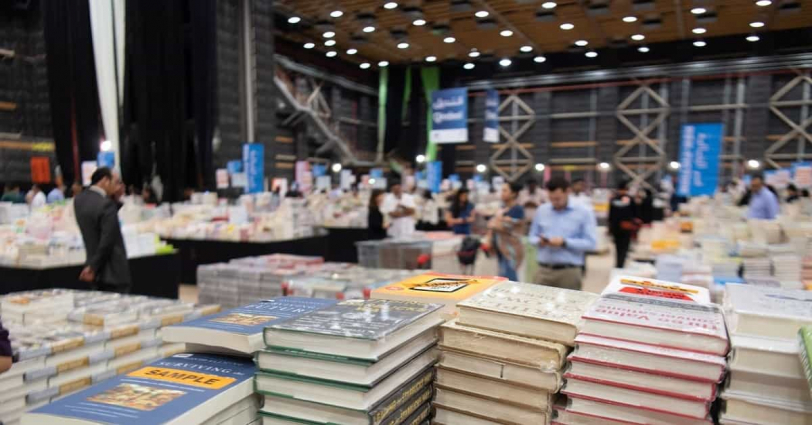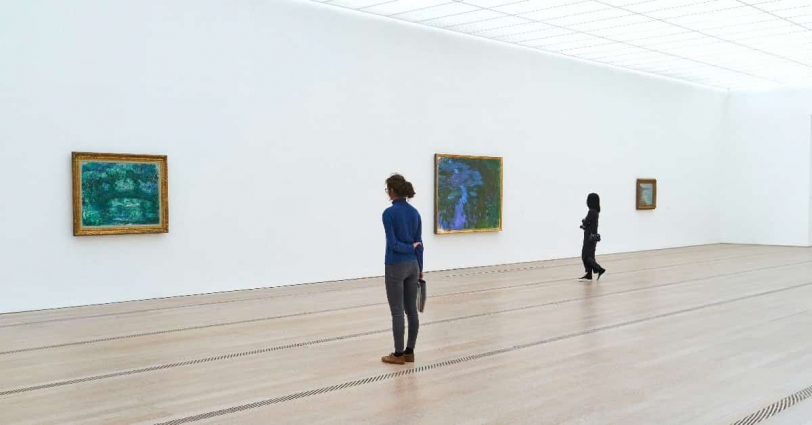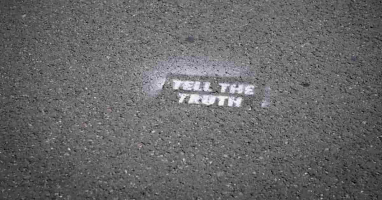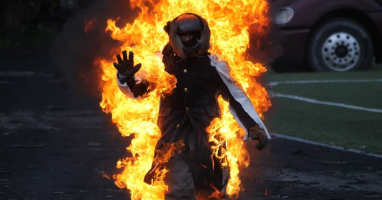I wrote this article in Japanese and translated it into English using ChatGPT. I also used ChatGPT to create the English article title. I did my best to correct any translation mistakes, but please let me know if you find any errors. By the way, I did not use ChatGPT when writing the Japanese article. The entire article was written from scratch by me, Saikawa Goto.
Introduction
Movies and books covered in this article

Three takeaways from this article
- They say that a collector of rare books is someone who would sell their grandmother to buy the books they want.
- “Attachment” brought about by the unique nature of books, which is different from collecting art.
- How has the appearance of the internet changed the world of rare books?
Self-introduction article


Published Kindle books(Free on Kindle Unlimited)
“The genius Einstein: An easy-to-understand book about interesting science advances that is not too simple based on his life and discoveries: Theory of Relativity, Cosmology and Quantum Theory”
“Why is “lack of imagination” called “communication skills”?: Japanese-specific”negative” communication”
The quotes used in this article are based on notes taken at the movie theater from movies in Japanese and are not direct quotes from the foreign language original movies, even if they exist.
A Movie that Vividly Depicts the Unique World of “Rare Books Collector”
The Movie’s Structure and about “Collector”

First, let me briefly introduce the movie.

This movie focuses on people called “rare books collector” and “rare books dealer”. It starts with footage from the New York International Antiquarian Book Fair, known as the world’s largest event of its kind, and follows people who are deeply immersed in the world of books, including those who sell, buy, collect, and introduce them.
The movie features a variety of characters, such as a sandal-wearing book seller who enjoys great trust even from libraries, three sisters who inherited a long-established bookstore, a female dealer who conveys the charm of books to younger generations, and a famous author who is obsessed with books. All of them can be said to be “crazy” in a good way.

One person said this:
Rare book collectors are people who would sell their grandmothers to buy the books they want.
Indeed, there are many characters in the film who would almost be convinced if I was told so. They are people who seem to care only about books and nothing else.
Seeing them like this, I feel envious because I don’t have anything that I’m that passionate about.

Or rather, it’s more accurate to say that I’m consciously trying not to create something that I can’t live without. That’s because once I have “something I feel I can’t live without,” I always feel the fear of losing it.
So I consciously avoid creating something that I would get hooked on. As for it, I can’t help that, though, because of my own personality, but still, when I see people who can become obsessed with something, I can’t help feeling envious.
Now, in this article, I want to touch on the “value created by rare book collectors” and the “concerns of rare book collectors.” This is a movie that will surprise you with the “world of books” that is completely different from buying books at a bookstore on the street.

The Difference Between “Works of Art” and “Books” as a Collection
What struck me the most while watching this movie was the difference between “works of art” and “books” as a collection. I used to think that “books” were treated as a part of “works of art,” but when I heard it explained, I realized that there is a significant difference between the two.


When it comes to art, except for things like prints, most of it can be considered one-of-a-kind. That’s why “art collectors” not only want it for themselves, but also have a strong desire to keep others from owning it. It means that art gives them a kind of superiority by having something that others don’t have.

However, books are different. With few exceptions like unique cover designs, books are essentially replicable. There are usually very few situations in which no other book exists that is identical to the one they own. Therefore, the feeling of not wanting others to own the same book that art collectors have is less likely to arise.
That’s why book collectors place more emphasis on the “attachment” they have with the books they own. Of course, they can also have “attachment” to art, but because art is one-of-a-kind, it has value even if they don’t have that attachment. However, it is very interesting to indicate that in the case of books, more emphasis is placed on “attachment” because the value of a book as one-of-a-kind is low.
In the movie, there are characters who not only collect books but also collect them to sell. However, their attachment to the books is so strong that it makes one wonder if they really want to sell them. On the other hand, in the case of art, although it is a selfish image, I have the impression that it is a bit more ruthless, or that the monetary value is more storong.

This characteristic of books, that copies exist, may make the existence of a book collector even more unique.
This may relate to a statement by someone in the industry that goes like this:
Most people enter this industry by chance.

The various professions related to books in this movie are mostly people who have stumbled into the world of rare books by chance. Perhaps this is also because they were drawn to the unique charm of books where copies exist.
The most interesting background among the characters is from someone who “lent out rare books to a library as a child.”


His parents love antiques, and every time he entered an antique shop, they would give him 5 cents and tell him to be quiet. They visited various antique shops, so they could save up enough money in one day to buy a book. He would buy hisy favorite books with the money he saved, and it turns out that he unknowingly acquired a rare book (maybe even the seller didn’t realize it was rare book).
Once, the boy heard from his parents about a library advertisement in the newspaper looking for that book. He then lent the rare book he had in his collection to the library. He was apparently the youngest person to ever loan a book to the library.
This became his entry point into the world of rare books. It’s amazing how life can be changed by a single event.

“Value Creation” by Collectors
A “collector” is not just someone who gathers books. They often shed light on the “new value” of books.
For example, there was a female collector who revealed that Alcott, famous for “Little Women,” had written pulp novels (probably mass-market novels using low-quality paper) under a pseudonym. This women found new value in the rare book collecting world, which was heavily male-dominated at the time, and made history with their unique perspectives.

In addition, there was another female collector who realized the lack of collection of books written by women about women in a male-dominated world and began collecting them. She created a rare and meaningful collection that is recognized worldwide.
Collectors also played a big role in recognizing the value of “book jackets.”
In the past, book jackets only served to protect the books and were discarded once the books were brought home. However, as collectors found value and began to collect them, even their value as objects of research has been born. For example, when editions change, the notation of an author’s biography may also change. By collecting book jackets, they can now trace the changes and the evolution of the book.

In a movie, there was a story about an impactful book jacket related to Fitzgerald’s works.
First edition without book jacket: $1,500
First edition with torn book jacket: $15,000
First edition with book jacket in perfect condition: $150,000
It was introduced that the presence and condition of a book jacket can make a difference of up to 100 times in value.
The role of a “dealer” who sells rare books is also discussed, not just collecting them.
A rare books dealer spends 10, 20, or 30 years educating their clients.
They pass on the ability to learn the true value of books.

It is quite difficult to recognize the value of a book, and it requires extensive knowledge and experience. By passing on the knowledge one has acquired through the act of “selling,” the world of rare books continues to be connected from generation to generation.

In this movie, a very famous rare books dealer who has passed away, but was a charismatic rock guitarist by profession, is introduced. He developed an eye for books by visiting bookstores during his tours around the United States, and acquired a certain insight. With his vast knowledge, he was able to evaluate the value of books in an encyclopedic manner and was highly respected in the industry for his exceptional erudition.
As you learn more about it, you will realize that it is a very deep world.

Dramatic Changes Brought About by the Internet and Personal Computers
The world of rare book collectors is undergoing a major transformation due to the Internet and computers.
In the movie, a person answered the definition of “rare books” as follows:
Books that are hard to find and many people want.
However, with the advent of the Internet, the “hard to find” aspect is being rapidly eliminated, and the “many people want” element is now clearly visualized.

Of course, in terms of convenience, this is a very welcome change. One person evaluated the changes brought about by the internet as follows:
It can be said that the Internet has democratized the demand and supply of books.
However, the same person also said this:
They took away the dim, shady, and interesting parts somewhere.
Certainly, as mentioned at the beginning, for “books” that have copies, the emphasis is on “relationships.” In that case, the history and episodes of “how to acquire” would also be important. However, by making distribution easy, the internet may have faded an important element in “collecting books.”


The following words uttered by another person would also impress what was lost.
The Internet is killing hunting.
Also, to speak a little more realistically, the impact of the Internet is that the value of rare books has decreased. This is a major blow to dealers. Books that used to be traded for $50 to $125 are now worth only $20 to $30. While it may be a positive change for buyers, the “ease” of obtaining these books seems to hinder the “depth” that dealers are trying to cultivate.

Another change brought about by the Internet is the “collection target.” With the internet, information on books is collected and circulated, and the value of books is becoming more standardized. There will be fewer cases where something can be bought for $100 in America but would cost $500 in Japan.
This also means that the meaning of “rare” in “rare books” is being diluted.
That’s why the focus of collecting is shifting to even rarer items such as letters, postcards, and manuscripts, which were not considered collection target before but are now gaining popularity thanks to the internet.
However, this is also not unrelated to technological changes.

The letters collected by rare book collectors often belong to the authors themselves. These letters contain glimpses into the creative process and provide insight into the author’s circumstances at the time.

However, in an era where writing on computers and communicating through email and messaging apps is commonplace, is it still possible to archive an author’s creative process?

Can’t open files from 7 years ago, but can open books from 500 years ago.
This comment perfectly illustrates the unique advantage of the “books” medium, but it also highlights the potential situation where everything is confined to a computer and only “works” can be archived.
Such a sense of crisis was also discussed in the film.

Rise of Women Collectors Due to Changes in Collectible Items
It was mentioned that the emergence of the internet has caused a change in the items being collected, and this has also resulted in an increase in female collectors.
And it is also hoped that this may change the world of rare books.

Collection of rare books originally began as a hobby of the British nobility. Many related organizations are based on “social clubs,” so it has inevitably been male-dominated.
A female collector who discovered a large number of Alcott’s pulp novels sent a letter requesting to join a rare books collector’s group. However, she received a response that only said “make contributions to books.” Despite having already made significant contributions, she was denied membership simply because she was a woman.

In the world of rare books, there are a few well-known female collectors and dealers, but many women who have made significant contributions are buried in obscurity.
Such a situation has not changed significantly, and the ratio of rare books dealers is said to be about 85:15. However, there is a possibility that this will change in the future. This is because people are now interested in items that were not previously considered for collection.
These items hasn’t previously gotten much attention in the male-dominated world, so there are also opportunities for women to participate. Collecting items such as letters or postcards is relatively inexpensive and accessible for women. It means that if demand increases, the supply side will have to change accordingly.

A female rare books dealer who runs a project to give an annual $1000 prize to female dealers said,
Collecting is not just about spending money. The things that truly hold value are the ones you don’t have to spend money on.
In this movie, rare books that cost millions or even billions of dollars are often talked about, making it seem intimidating to become a collector. However, becoming a collector doesn’t necessarily require spending a lot of money. If you collect things you love, it can gradually become recognized as a collection. If it becomes, it is easy for younger generations to join in and it can be said that there is potential for changes in tastes and preferences in the rare books world.
Although this movie may show a slightly different form, it also depicts young people who want to be involved with “books” in some way. Examples include a couple in America who opened a bookstore during the boom of “individual bookstores” or a young editor of a web media who collects old magazines related to hip-hop.


I’ve worked in a bookstore for a long time and I’ve met young people who always say they like books as a physical object. Although there may not be many of them, I believe that the attachment to paper books will never be lost. In an age where “visual things” like Instagram and YouTube are emphasized, I also think that the “physical book” will find a different kind of value.
In an age when information is so easily obtained, it is likely that a trend would emerge to value “information that is difficult to obtain.” In addition, internet information is not free from false rumors or mistakes. I hope that some people will value “books as information” for the sake of “accurate information.”

Conclusion
The characters in the movie are a bit extreme and probably hard to relate to. However, I have a feeling like a strong admiration for their love and passion for books, and I also think that the world of books is still fascinating because of people like this.
The movie allows us to catch a glimpse into a deep and unknown world that we may not have had the opportunity to know otherwise.

Published Kindle books(Free on Kindle Unlimited)
“The genius Einstein: An easy-to-understand book about interesting science advances that is not too simple based on his life and discoveries: Theory of Relativity, Cosmology and Quantum Theory”
“Why is “lack of imagination” called “communication skills”?: Japanese-specific”negative” communication”







コメント